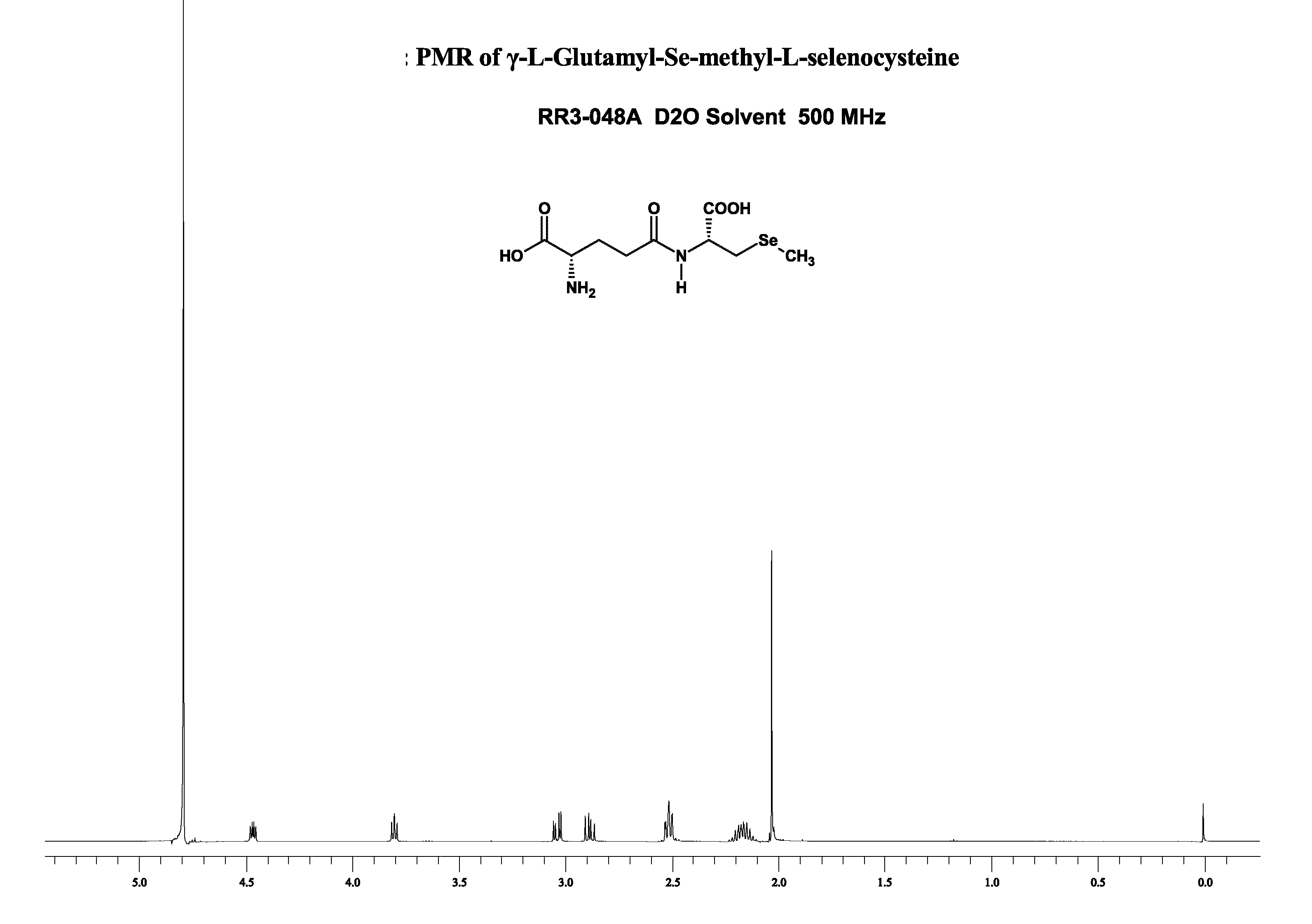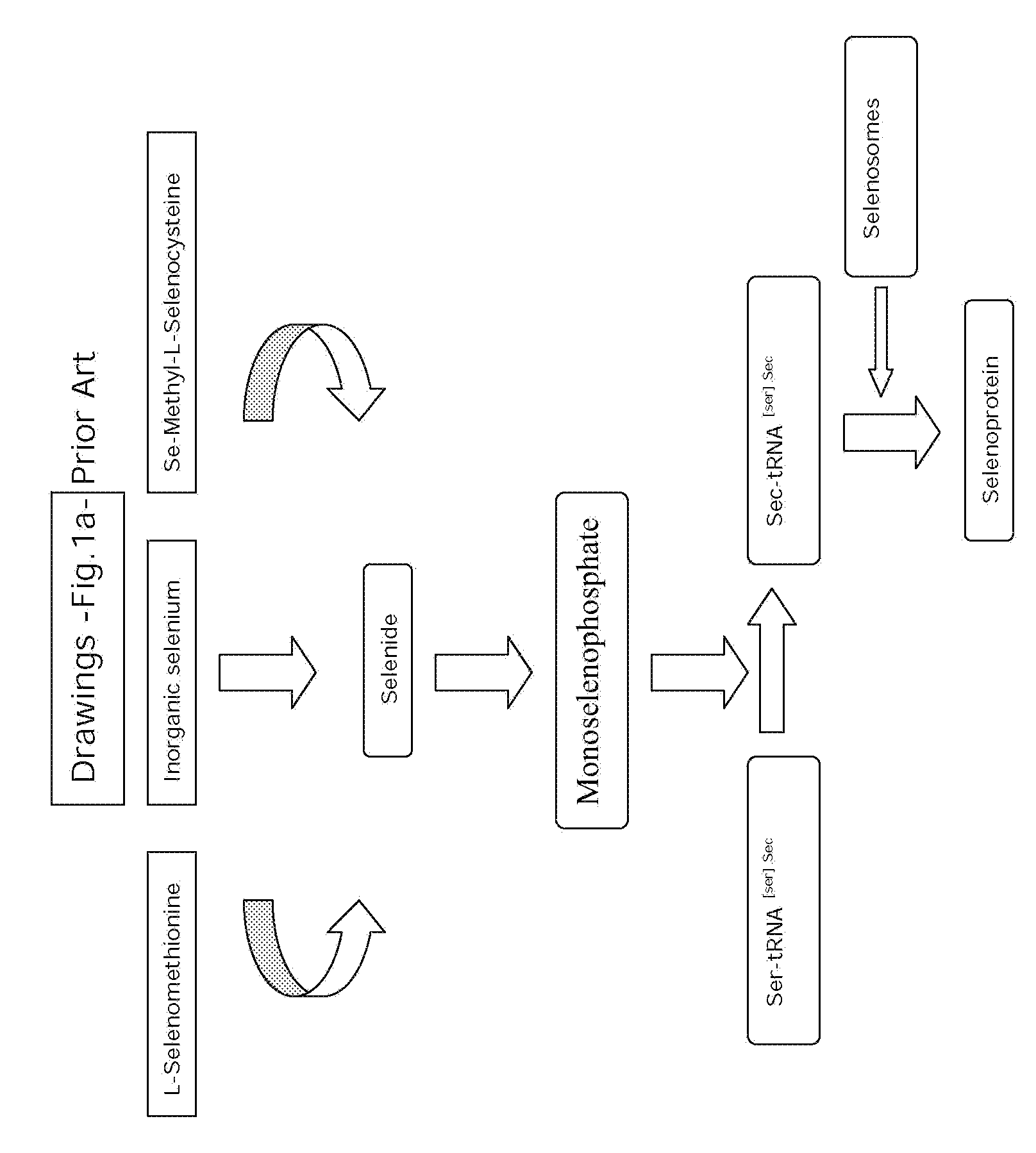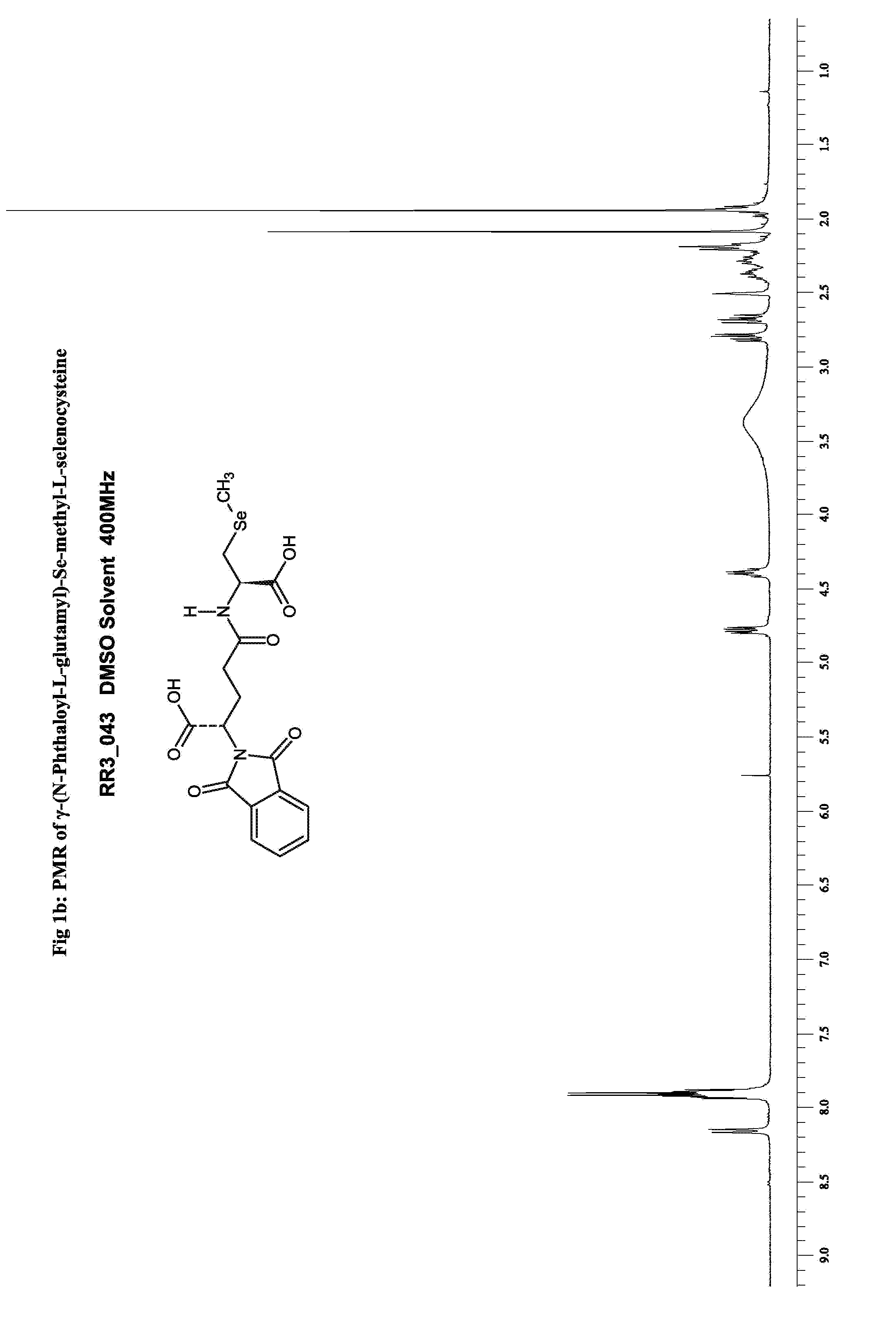Novel Dipeptides incorporating selenoamino acids with enhanced bioavailability- Synthesis, pharmaceutical and cosmeceutical applications thereof
a technology of selenoamino acids and dipeptides, applied in the field of synthetic methods, can solve the problems of low dissolution rate and unfavorable economics of production methods, and achieve the effects of enhanced water solubility, enhanced stability, and enhanced water solubility
- Summary
- Abstract
- Description
- Claims
- Application Information
AI Technical Summary
Benefits of technology
Problems solved by technology
Method used
Image
Examples
example i
Synthesis of γ-(N-Phthaloyl-L-Glutamyl)-Se-methyl-L-selenocysteine
[0053] The sequence of reactions in the synthesis of γ-(N-Phthaloyl-L-Glutamyl)-Se-methyl-L-selenocysteine are represented as Steps 1-4 herein below. The reaction starts with the protection of the amino group L-glutamic acid as its phthaloyl derivative. While the phthaloyl protected derivative of L-glutamic acid had been prepared earlier using phthalic anhydride (H. Gu, Y. Jiang, Organic Prep. Proced. Int., 36(5), 479 (2004), they invariably result in complete or partial racemization and were difficult to adapt or reproduce. Another way of introducing phthaloyl groups onto the amino groups is the use of Nefken reagent (C. R. McArthur, P. M. Worster, A. U. Okon, Synthetic Communications 13, 311 (1983); C. R. McArthur, P. M. Worster, A. U. Okon, Synthetic Communications 13, 393 (1983)). However, the preparation and use of Nefken reagent have been reported to result in by-products (P. M. Worster, C. C. Leznoff, C. R. McA...
example ii
Synthesis of γ-(N-phthaloyl-L-Glutamyl)-L-selenomethionine
[0060] The synthesis of γ-(N-phthaloyl-L-Glutamyl)-L-selenomethionine is outlined in (Equation 6; Step (i)) and (Equation 7; Step (ii)).
Equation 6—Synthesis of γ-(N-phthaloyl-L-Glutamyl)-L-selenomethionine from N-Phthaloyl-L-glutamic anhydride and L-selenomethionine
[0061]
Step (i)—N-Phthaloyl-L-glutamic anhydride (13.25 g, 51.1 mmol) as obtained in Example I; Step 3 (represented by Equation 3), and L-selenomethionine (10 g, 51.0 mmol) were taken in a 500 ml RB flask containing acetonitrile (150 ml). The mixture was stirred with heating at 65° C. Water (30 ml) was added to the reaction mixture and the temperature was maintained at 65-70° C. for about 7-8 hrs. A clear solution was obtained. The completion of the reaction was evaluated by TLC. The reaction mixture was cooled and filtered to remove undissolved particles. The filtrate was concentrated to give the product, γ-(N-phthaloyl-L-Glutamyl)-L-selenomethionine weighing ab...
example iii
Synthesis of α-Glutamyl-L-selenomethionine
[0063] The synthesis of α-Glutamyl-L-selenomethionine is outlined in (Equation 8; Step I), (Equation 9; Step II), (Equation 10; Step III), (Equation 11; Step IV) and (Equation 12; Step V).
Equation 8—Synthesis of L-Selenomethionine methyl ester hydrochloride (LSM-OMe.HCl)
[0064]
The synthesis of L-Selenomethionine methyl ester hydrochloride (LSM-OMe.HCl) is represented in Equation 8. L-Selenomethionine was added to a solution of acetyl chloride in methanol and the clear solution so obtained was stirred at room temperature till completion of the reaction (about 20 hrs). The solvents were removed in vacuum and the residue precipitated using dry diethyl ether.
Equation 9—Synthesis of N-t-Butoxycarbonyl-γ-t-butylglutamate [Boc-Glu (O-t-Bu)]
[0065]
Step II—The synthesis of N-t-Butoxycarbonyl-γ-t-butylglutamate [Boc-Glu (O-t-Bu)] is represented in Equation 9. To a solution of Glu (O-t-Bu) in saturated sodium bicarbonate solution was added a solutio...
PUM
| Property | Measurement | Unit |
|---|---|---|
| melting point | aaaaa | aaaaa |
| temperature | aaaaa | aaaaa |
| temperature | aaaaa | aaaaa |
Abstract
Description
Claims
Application Information
 Login to View More
Login to View More - R&D
- Intellectual Property
- Life Sciences
- Materials
- Tech Scout
- Unparalleled Data Quality
- Higher Quality Content
- 60% Fewer Hallucinations
Browse by: Latest US Patents, China's latest patents, Technical Efficacy Thesaurus, Application Domain, Technology Topic, Popular Technical Reports.
© 2025 PatSnap. All rights reserved.Legal|Privacy policy|Modern Slavery Act Transparency Statement|Sitemap|About US| Contact US: help@patsnap.com



